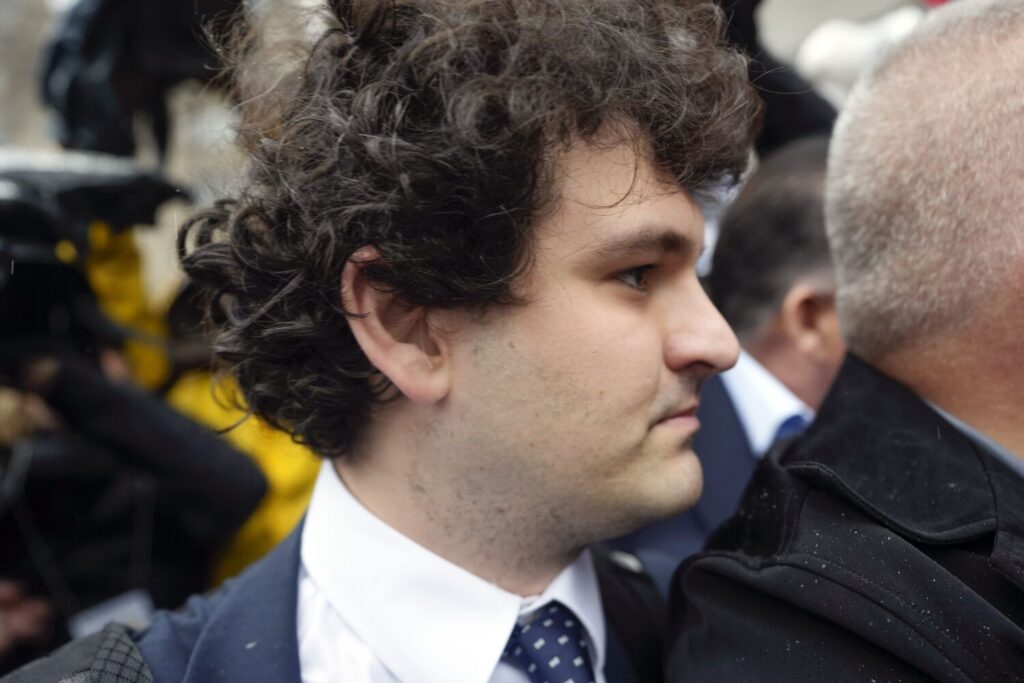Sam Bankman-Fried could be in danger of returning to jail after a bail hearing at which the judge overseeing his case expressed skepticism about whether the FTX founder could be trusted to remain at home with access to the internet while awaiting trial.
At the Thursday hearing, U.S. District Judge Lewis Kaplan suggested Bankman-Fried, who is under indictment on charges of fraud and money laundering, had exploited the conditions of his home arrest to contact and seek to influence the testimony of potential witnesses. He also implied that he didn’t believe Bankman-Fried’s explanation for his use of a virtual private network, or VPN, a technology that makes it possible to conceal internet activity.
Prosecutors are seeking to tighten the terms of Bankman-Fried’s release, but so far have not sought to have his bail revoked. But Kaplan implied he thought they should — “You’re putting an awful lot of trust in him, aren’t you?” he said — and made it clear that he might revoke bail if proposals on new terms don’t satisfy his concerns.
A representative for Bankman-Fried declined to comment. In court filings, the FTX founder’s attorneys said that he used a VPN to watch the Super Bowl and other NFL games.
Meanwhile, court documents unsealed Wednesday revealed that Bankman-Fried’s bail was backed by two Stanford University academics.
Stanford Law School dean emeritus Larry Kramer signed a bond pledging to pay $500,000 if Bankman-Fried violated the terms of his bail, and Stanford Senior Research Scientist Andreas Paepcke signed a bond for $200,000.
The revelation of the academics’ names adds to the public ties between the embattled crypto mogul, under federal indictment on charges of fraud and money laundering, and the Palo Alto university. Previously, The Times reported that Bankman-Fried’s $250-million bail bond was secured by his parents’ faculty home on land that they rent from Stanford.
“Joe Bankman and Barbara Fried have been close friends of my wife and I since the mid-1990s,” Kramer wrote in a statement. “During the past two years, while my family faced a harrowing battle with cancer, they have been the truest of friends — bringing food, providing moral support, and frequently stepping in at moment’s notice to help. In turn, we have sought to support them as they face their own crisis.
“My actions are in my personal capacity, and I have no business dealings or interest in this matter other than to help our loyal and steadfast friends,” he added.
Paepcke did not respond to a request for comment.
A representative for Bankman-Fried declined to comment.
Stanford did not respond to a request for comment. Previously, a representative said the university’s permission was not needed to use the Stanford faculty house for Bankman-Fried’s bail.
Bankman-Fried used a VPN on at least two occasions, court filings show. Bankman-Fried’s attorneys said in a court filing that their client used a VPN to access an NFL Game Pass international subscription to watch the Super Bowl on Feb. 12 and, on Jan. 29, to watch the AFC and NFC championship games.
All three football games were available for free on regular television. The Super Bowl and the NFC games were broadcast on Fox, and the AFC game was on CBS.
Previously, the court added several prohibitions on Bankman-Fried, pending the outcome of bail negotiations. Bankman-Fried may not use Signal and encrypted chat programs, and he is barred from contacting current or former employees of FTX or Alameda Research, the hedge fund tied to FTX, but can contact immediate family members.
On Jan. 15, Bankman-Fried contacted a potential witness over Signal, writing that he would “really love … for us to have a constructive relationship, use each other as resources when possible, or at least vet things with each other.”
In a court filing Wednesday, prosecutors expressed alarm that Bankman-Fried “used a VPN after the Court expressed concern about the use of encrypted channels beyond those identified by the Government in its proposed bail conditions, and once he was already on notice about the Government’s concerns regarding encrypted and undetectable electronic activity.” Prosecutors argued that Bankman-Fried had used Signal “for purposes of evading law enforcement detection.”
Bankman-Fried’s attorneys said in court filings that his use of Signal and a VPN had no “improper purpose.”
Bankman-Fried’s trial is to begin in October. Meanwhile, the terms of his bail require, among other things, that he surrender his passport, wear an electronic monitoring device and remain at his parents’ home. A far cry from federal detention, he will be confined to a five-bedroom, three-bathroom house that is slightly more than 3,000 square feet on nearly an acre lot with a pool and a hot tub, records show.
Alison Siegler, a professor at the University of Chicago Law School, said for Bankman-Fried to remain under house arrest rather than in jail reflected a pattern of judges and prosecutors “treating privileged people and those charged with white-collar offenses differently than those without means or status.”
“In the 20 years I’ve spent as a federal public defender … I can’t recall a single case where the government levied these kinds of serious allegations and then asked the judge to keep a client out, rather than moving to revoke the bond and lock the client in jail,” Siegler said.
Bloomberg was used in compiling this report.

